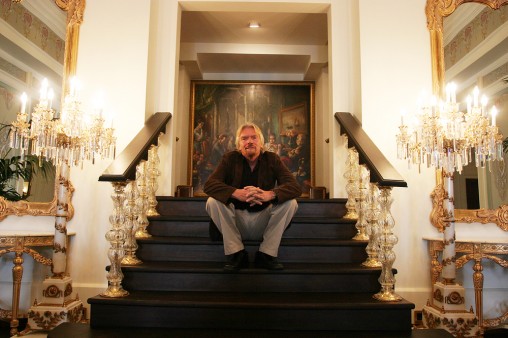Sir Richard Branson, founder of the social impact body Virgin United, has shown all of us how passion for helping others alone can create a lasting impression on the world.
We sometimes see traditional charitable efforts to deliver social services as a one way flow – one dollar to feed my neighbor is one less dollar to feed my own. However, new, innovative and bold minds, coupled with greater awareness of global struggles, have paved the bridge where underprivileged communities can access temporary monetary relief and the means to extend the reach of such largesse. Social enterprises are at the vanguard of marrying the financial and management expertise of global bodies with local talent to spur sustainable social and environmental projects.
If there is a single person who embodies the entrepreneurial spirit of today’s bold stride towards making a difference in local communities, Sir Richard Branson, founder of the social impact body Virgin United, has shown all of us how ingenuity and a passion for helping others alone can create a lasting impression on the world. Having sculpted his first magazine business at the age of 16 and successfully launched and signed the signature artists Rolling Stones and Sex Pistols through his flagship company Virgin Records, Sir Branson has incorporated an innate sense of entrepreneurship in his day to day life.
The true artistry of his knack for creativity came into play when Sir Branson entered the humanitarian world by supporting public health efforts to alleviate some of the most formidable infections like HIV/AID, malaria, and tuberculosis in deprived regions at the grass root level. By establishing the nonprofit Virgin Unite brand under his venture capital firm Virgin Group, individuals in poverty-stricken countries, particularly in Sub-Saharan Africa, have not only received access to tools to mitigate the spread of life-threatening infections, but also the dual benefit of being able to use these resources to create sustainable businesses that can improve local livelihoods.
Heaven’s Angels Campaign
One deeply rhapsodizing movement by Virgin Unite is captured in its Heaven’s Angels Campaign, which challenges the lack of proper inland infrastructure in South Africa and Kenya that is obstructing healthcare products and services from reaching thousands of people who could otherwise avoid victimization by communicable diseases. The team equips previously unemployed locals with motorcycles to deliver batches of medicines, equipment, and medical services to rural and isolated districts. However, the story does not end here. With each motorcycle averaging $5,000 in costs, the entrepreneurial spirit of the employees has inspired them to employee this capital to upstart their proprietary taxi and transportation enterprises. As a result, the campaign acts as its own funding source while delivering humanitarian relief. Individuals flirting with the thought of creating their own or participating in established social welfare projects can look to Sir Richard Branson as an epitome of how society can sidestep the pitfall of charity models in which we transfer resources for temporary relief that do not carry the added benefit of self-sustaining those efforts in the long run. People in all tranches of society, whether working on public policy initiatives or incubating private campaigns, can assimilate some aspect of United Virgin’s approach to give more families the amenities that we sometimes take for granted.
Along with promulgating public health campaigns across underprivileged rural communities, Virgin Unite champions its social enterprise approach to challenging environmental distresses impacting us on a personal level. Four years ago, the team introduced the Carbon War Room venture to tackle the hemorrhaging emission of Co2 in a progressively urban period. The CWR spawned an innovative online platform that gauges the level of gas emission efficiency of individual vessels across the global shipping industry, responsible for 1 billion tons of annual discharge of Co2. Budding and established corporations are employing this framework to make conscious decisions in regards to the makeup of their maritime fleet. While most of us may not consider this initiative in a traditional philanthropic light, it quintessentially underpins how pressing social concerns can be mitigated while igniting ways for these efforts to fuel themselves or provide ancillary benefits that can help sustain social impact projects.
While we all may have our differences in opinions about how we can best serve society at large, Sir Richard Branson reminds us that the most critical ingredient to a meaningful cause is that initial momentum and sense of initiative. If we do not take the stand to involve ourselves with the opportunities to make a material impact flying right by us, then there is no chance that marginalized groups of people can receive any alleviation. We might feel it impossible to make a dent in the larger scheme of the world, but if we overcome that apprehension, then we can see how entrepreneurial spirit at the grass root level can drive some of the most profound movements taking place right now.



















